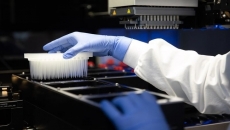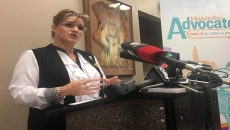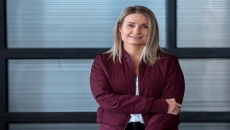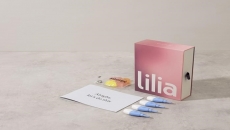Coronavirus cases are climbing rapidly among young adults in a number of states where bars, stores and restaurants have reopened — a disturbing generational shift that not only puts them in greater peril than many realize but poses an even bigger danger to older people who cross their paths.
In Oxford, Mississippi, summer fraternity parties sparked outbreaks. In Oklahoma City, church activities, fitness classes, weddings and funerals seeded infections among people in their 20s, 30s and 40s. In Iowa college towns, surges followed the reopening of bars. A cluster of hangouts near Louisiana State University led to at least 100 customers and employees testing positive. In East Lansing, Michigan, an outbreak tied to a brew pub spread to 25 people ages 18 to 23.
There and in states like Florida, Texas and Arizona, young people have started going out again, many without masks, in what health experts see as irresponsible behaviour.
“The virus hasn’t changed. We have changed our behaviours," said Ali Mokdad, professor of health metrics sciences at the University of Washington in Seattle. "Younger people are more likely to be out and taking a risk.”
In Florida, young people ages 15 to 34 now make up 31% of all cases, up from 25% in early June. Last week, more than 8,000 new cases were reported in that age group, compared with about 2,000 among people 55 to 64 years old. And experts say the phenomenon cannot be explained away as simply the result of more testing.
Elected officials such as Florida's governor have argued against reimposing restrictions, saying many of the newly infected are young and otherwise healthy. But younger people, too, face the possibility of severe infection and death. And authorities worry that older, more vulnerable people are next.
“People between the ages 18 and 50 don’t live in some sort of a bubble,” said Oklahoma City Mayor David Holt. “They are the children and grandchildren of vulnerable people. They may be standing next to you at a wedding. They might be serving you a meal in a restaurant.”
The virus has taken a frightful toll on the elderly in the U.S., which leads the world in total deaths, at over 120,000, and confirmed infections, at more than 2.3 million. Eight out of 10 deaths in the U.S. have been in people 65 and older. In contrast, confirmed coronavirus deaths among 18-to-34-year-olds number in the hundreds, though disease trackers are clamouring for more accurate data.
For months, elderly people were more likely to be diagnosed with the virus, too. But figures from the Centers for Disease Control and Prevention show that almost as soon as states began reopening, the picture flipped, with people 18 to 49 years old quickly becoming the age bracket most likely to be diagnosed with new cases.
And although every age group saw an increase in cases during the first week in June, the numbers shot up fastest among 18-to-49-year-olds. For the week ending June 7, there were 43 new cases per 100,000 people in that age bracket, compared with 28 cases per 100,000 people over 65.
With the shift toward younger people, some hospitals are seeing a smaller share of their COVID-19 patients needing intensive care treatment such as breathing machines.
“They are sick enough to be hospitalized, but they’re not quite as sick,” said Dr. Rob Phillips, chief physician executive of Houston Methodist Hospital. He said he still finds the trend disturbing because young people “definitely interact with their parents and grandparents,” who could be next.
In one Florida hospital system, nearly half the COVID-19 patients were on ventilators during April compared with less than 3 per cent now, said Dr. Sunil Desai, president of the Orlando Health hospital system.
Some of the young people who have fallen ill describe stretches of extreme pain and fatigue.
“My chest and my body hurt. Almost like I’d gotten in a car accident,” said Emily Ellington, 25, of suburban Austin, Texas, who tested positive about six weeks after the state began reopening.
In Florida, where many restaurants and bars reopened in early May, 32-year-old Kristen Kowall of Clearwater dined out with her fiancé in early June. Like others in the restaurant, she didn’t wear a mask. She tested positive over the weekend.
“I just feel really groggy and tired. It hurts to walk. Especially my ankles and knees, it feels like my bones are going to fall apart,” she said. “I definitely would advise people from going out. It’s not worth it.”
The increase among young adults may not all be due to reopenings and could also reflect wider testing that has reached younger, less sick people. Yet since May, younger adults have had a higher share of tests come back positive than their older counterparts.
In late March and April, that wasn’t the case — the highest positive rates were in people over 65. For the past month, roughly 7 per cent of tests done on 18-to-49-year-olds nationwide have come back positive. That is about 2 percentage points above older groups of adults.
Amid the surge, some Florida cities and counties are requiring people to wear masks before entering businesses. An Orlando bar popular with University of Central Florida students had its liquor license suspended after more than 40 people who went there upon its reopening tested positive.
Florida Gov. Ron DeSantis warned other bars they could lose their licenses if they don't follow social distancing guidelines.
“If you go in, and it’s Dance Party USA, dancing up to the rafters ... there’s no tolerance for that,” he said.






